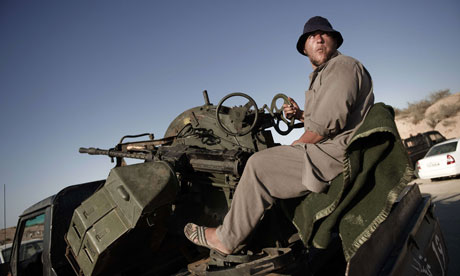Aghanistan: residents could see the blacked-out hotel on a hilltop on the western outskirts of Kabul illuminated by red tracer bullets and explosions Photograph: Massoud Hossaini/AFP
Nato helicopters fired on and killed members of a Taliban squad who attacked a landmark Kabul hotel on Tuesday night where senior Afghan officials were staying.
At least six Taliban, some of them suicide bombers, were involved in the assault on the Inter-Continental, which began when militants in civilian clothes burst into the hotel while many guests were in the dining room and others were attending at least two receptions, including a wedding party.
The Nato rocket attack appeared to have brought an end to the fighting, which lasted for more than four hours. The bodies of six civilians, believed to be hotel employees, were found by police, according to the Afghan interior ministry.
From miles across the city, residents could see the blacked-out hotel on a hilltop on the western outskirts of Kabul illuminated by red tracer bullets and explosions.
Afghan police and commandos flocked to the hotel to engage the attackers with machine guns and rocket-propelled grenades soon after the attack began at about 9.30pm.
According to the authorities, at least two attackers were shot dead and four blew themselves up, a tactic that has been used several times before on fortified buildings, including hotels, in the capital.
The Taliban's spokesman was quick to claim credit for the assault, claiming he had been in contact with one of the attackers inside the hotel.
The spokesman told Associated Press: "One of our fighters called on a mobile phone and said: 'We have gotten on to all the hotel floors and the attack is going according to the plan. We have killed and wounded 50 foreign and local enemies. We are in the corridors of the hotel now taking guests out of their rooms – mostly foreigners. We broke down the doors and took them out one by one."'
His claim was denied by senior Kabul police officer Mohammad Zahir, who said the militants had been isolated on a "small section of the roof" and had not been able to go around the hotel, room to room. He said an unknown number of insurgents were firing from positions outside the hotel and that about five officers, including Zahir himself, had been wounded.
The insurgents were armed with machine guns, anti-aircraft weapons, rocket-propelled grenades and hand grenades, according to Samoonyar Mohammad Zaman, a security officer for the interior ministry, who said there were 60 to 70 guests at the hotel.
Another Afghan official said a group of senior provincial officials had been staying at the hotel at the time.
Bette Dam, a Dutch journalist at the scene, reported on Twitter that he had seen at least four rocket-propelled grenades being launched from the hotel into the nearby house belonging to Mohammad Qasim Fahim, one of the country's vice-presidents.
Afghanistan's interior minister, General Besmellah Khan, was reported to be present and was overseeing operations along with the city's police chief and an Afghan army commando unit.
Jawid, a guest at the hotel, told AP he jumped out of a one-storey window to escape the shooting.
"I was running with my family," he said. "There was shooting. The restaurant was full with guests."
The 1960s hotel, which has at least 200 rooms and is no longer formally part of the Intercontinental chain, is not the magnet to western travellers it once was, many of whom now stay in more recently built hotels. But it is popular with well-heeled Afghans and leading political figures, and it hosts a number of important conferences each year.
The last major attack on a similar hotel used by foreigners was in January 2008, when several Taliban gunmen killed six people in a commando-style attack on the nearby Serena hotel, which has been hit in several random rocket attacks since then.
However, the latest attack on such a well-defended hotel, which is impossible to approach without going through at least two security checkpoints, is embarrassing to the Afghan government as it prepares to take responsibility for security in Kabul province as part of much vaunted "transition" strategy.
The attack came the night before the start of a conference about the gradual transition of civil and military responsibility from foreign forces to Afghans, although an Afghan government official told reporters that the hotel was not one of the venues to be used by the conference or its delegates.
Afghan authorities have already been nominally in charge of Kabul for some time.
Attacks in the Afghan capital have been relatively rare, although violence has increased since the 2 May killing of Osama bin Laden in a US raid in Pakistan and since the start of the Taliban's annual spring offensive.
On 18 June, insurgents wearing Afghan army uniforms stormed a police station near the presidential palace and opened fire on officers, killing nine.
Earlier on Tuesday, officials from the US, Pakistan and Afghanistan met in Kabul to discuss prospects for making peace with the Taliban.
"The fact that we are discussing reconciliation in great detail is success and progress, but challenges remain and we are reminded of that on an almost daily basis by violence," Jawed Ludin, Afghanistan's deputy foreign minister, said at a news conference.


















